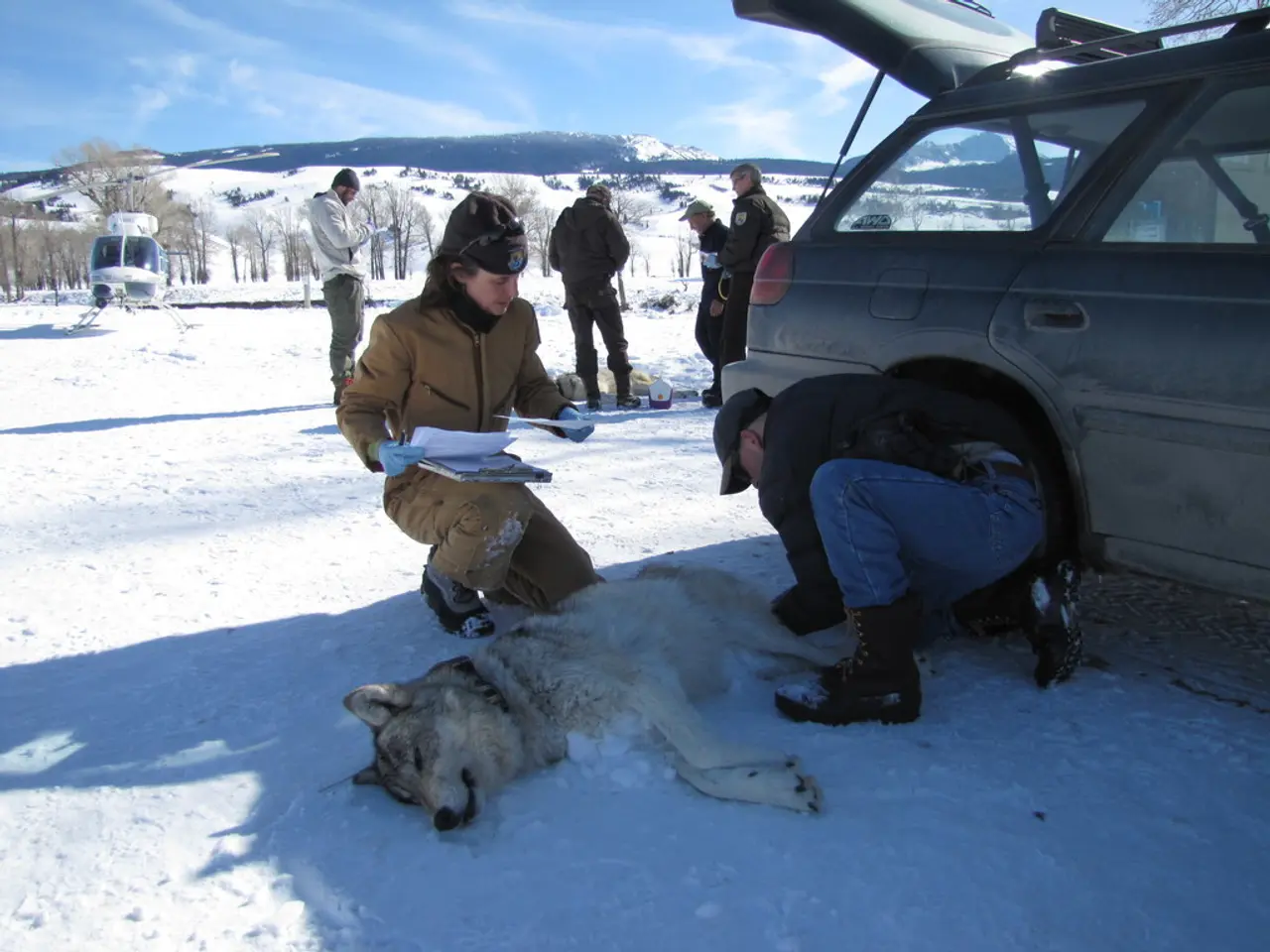COVID cases on the rise during summer season
As the summer heat waves sweep across the United States, a concerning trend has emerged: a rise in COVID-19 cases. This summer upswing, while not yet a full-blown surge, has been confirmed by Dr. Ziyad Al-Aly, a senior clinical epidemiologist at Washington University in St. Louis.
According to recent data, the NB.1.8.1 variant, also known as "Nimbus," has become the most prevalent strain in the country, accounting for around 43% of cases. This variant, while not causing more severe illness than recent strains, has a few additional mutations that may make it more transmissible and better at evading the immune system's defenses.
The increased transmission of the virus is largely attributed to people spending time in air-conditioned spaces, a common practice during the summer months. Even outdoor events like music festivals can provide an environment for the virus to spread, as people inhale contaminated respiratory droplets.
Travel during the summer also contributes to the spread of COVID, as people often crowd into airports and trains. Some states, such as Texas, Utah, and Nevada, are showing very high concentrations of COVID in their wastewater, indicating a significant presence of the virus in these areas.
The Fourth of July holiday, with its gatherings and festivities, can create a "ripe breeding ground" for COVID infections, similar to Thanksgiving and Christmas. The Centers for Disease Control and Prevention's forecasting model estimates that COVID infections are growing, or likely growing, in most states.
However, it's important to note that while the numbers are higher than they were a couple of months ago, they do not present a "panic situation." Emergency department visits linked to COVID are rising, but the situation is still manageable with the right precautions.
The summer uptick in COVID cases underscores the importance of getting vaccinated. Vaccines provide immunity for around four to six months, and by summer, immunity tends to wane, making people susceptible to getting sick again.
As for the availability of updated COVID vaccines this year, it remains unclear. If you experience symptoms such as coughing and sneezing during the summer, it's more likely to be COVID than the flu or respiratory syncytial virus, and a COVID test is recommended.
In conclusion, while the summer months may bring a rise in COVID-19 cases, it's crucial to remain vigilant and take necessary precautions. This includes getting vaccinated, wearing masks in crowded settings, and practicing good hand hygiene. By doing so, we can help curb the spread of the virus and protect ourselves and our loved ones.








